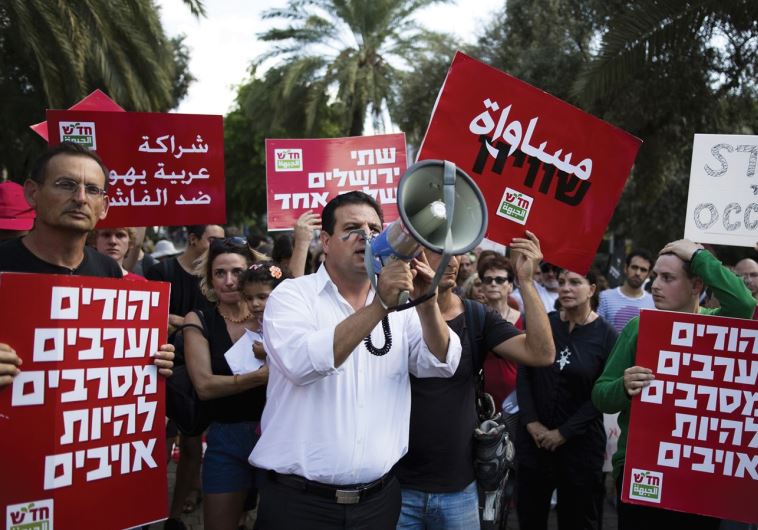The Arab Israelis and their potential role as the conflict’s true mediator
There is one recent development within the Arab-Israeli community that could provide an opportunity to get the peace process back on track.
 JOINT LIST leader Ayman Odeh leading a protest march in October
JOINT LIST leader Ayman Odeh leading a protest march in October